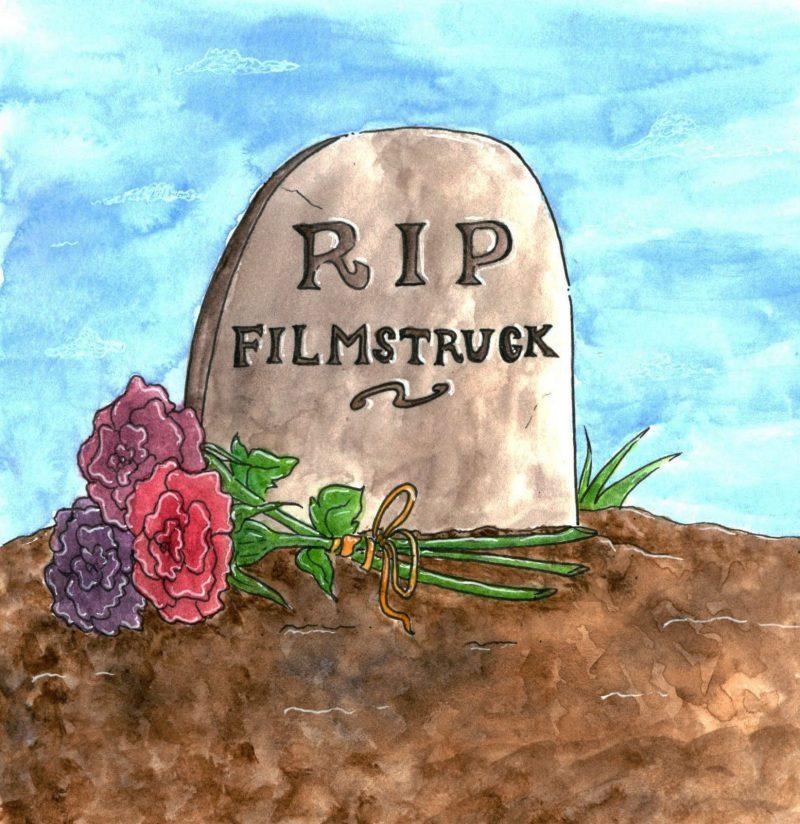A sad day is soon to come for movie buffs: on Nov. 29, 2018, the film-streaming subscription service FilmStruck will be discontinued due to the decision by WarnerMedia — recently merged with AT&T — to cut the service. FilmStruck was known for its selection of independent and classic movies provided by Turner Classic Movies and the Criterion Collection.
The announcement of the streaming service’s closure has struck a hard blow to its users, who have only a few weeks left to cross its selection of films off their watch list before it goes.
“It’s a real shame, what’s happening. Here was easily the richest and best-curated repository of films alternative to mass-market Hollywood material — which is not to disparage that material — gathered in one place, beautifully presented, annotated and available on a subscription model. Now purchased, written off as a loss and in the process of being dismantled,” said Benjamin Stevens, classics professor and faculty advisor to the Trinity University Film Club.
Although FilmStruck users have turned to a Change.org petition — which has now gathered over 50,000 signatures — in an attempt to save the streaming service, the aftermath of its discontinuation has brought up a question: what will this mean for film preservation and access from now on?
Patrick Keating, communication professor and chair of the film studies minor, saw a vague future for the content made available via FilmStruck.
“I expect within a year most of this content will be available somewhere. Maybe Criterion will strike another deal with Hulu, or maybe they’ll set up their own thing, but clearly Criterion would like this content to be out there somehow. As for the Turner Classic Movies collection, hopefully that will find a home somewhere,” Keating said.
While alternative streaming services exist, it was FilmStruck’s selection and curation of movies that drew in many loyal users. Junior Connie Laing, communication major and film studies minor, has observed a gap left in the world of streaming.
“It’s getting inaccessible movies to people, movies that are really difficult for low-income people [to access] or even just having the money to invest in them. It’s really an investment. I think it was more valuable to me than Netflix and Hulu because of that,” Laing said.
In the absence of FilmStruck, while it’s possible to turn to more mainstream streaming services such as Netflix and Hulu, cinephiles may not be aware that Trinity also offers access to the Coates Library-linked services Kanopy and Hoopla. Liaison librarian Michael Hughes emphasized the value of having access to these services, but also noted some limitations.
“What they lack is the comprehensiveness and the curation. I can’t really distinguish the presence of … a person who’s educated in the history of cinema who’s making decisions about what to present and why. And so when you get a channel on FilmStruck that is bringing attention to the overlooked films of women directors, that’s not something that Kanopy and Hoopla are doing to the best of my knowledge. … There’s a real effort [with FilmStruck] to help people make discoveries among all these titles so you aren’t paralyzed by choice alone,” Hughes said.
Although the future of accessing classic and independent films may appear bleak with the announcement of FilmStruck’s shutdown, Hughes is currently working to maintain and grow the collection of DVDs available to Trinity students and faculty in Coates Library. This selection includes various Criterion Collection titles and Best Picture winners, which corresponds with some of FilmStruck’s offerings.
For students interested in viewing and discussing film, Stevens emphasized that the Trinity University Film Club, which is up and running as of this semester, is looking to provide these kinds of opportunities.
“Not to recommend illegality, but … to recommend finding other people who like these sorts of things and asking them. It’s within your rights to screen films for private consumption, and people should do that with each other and share the things that they really love,” Stevens said.













